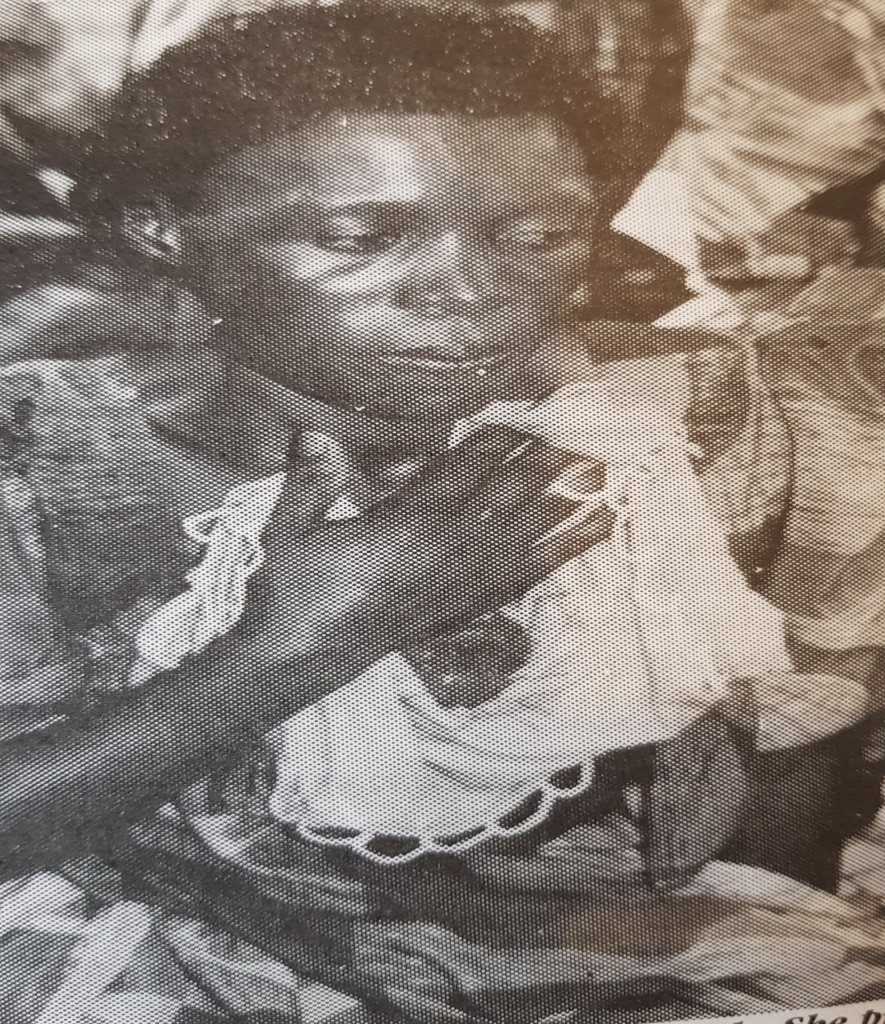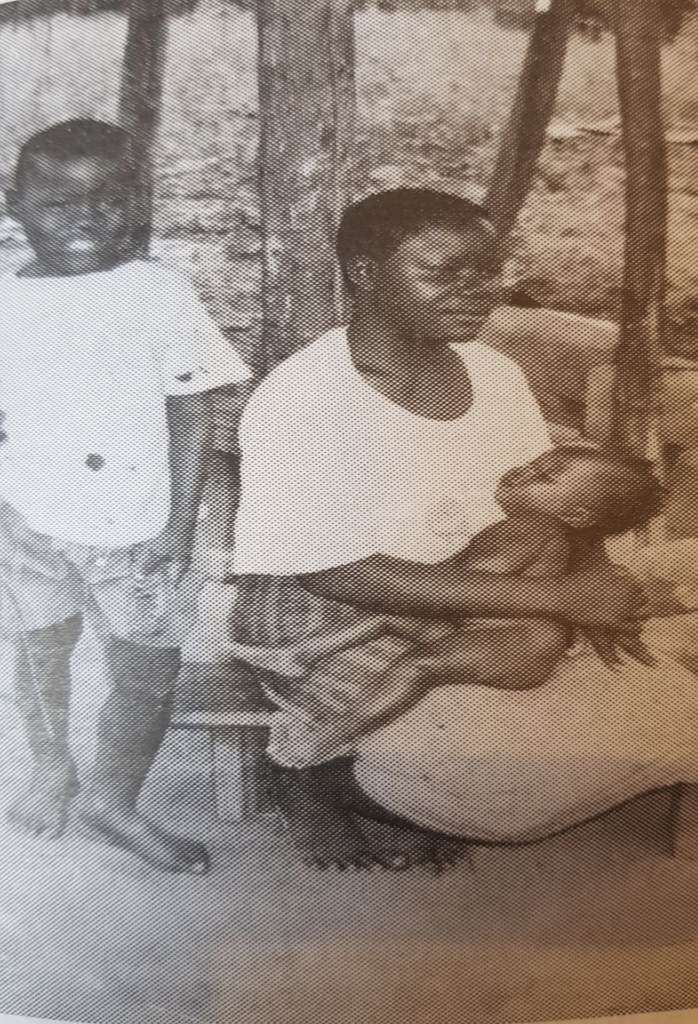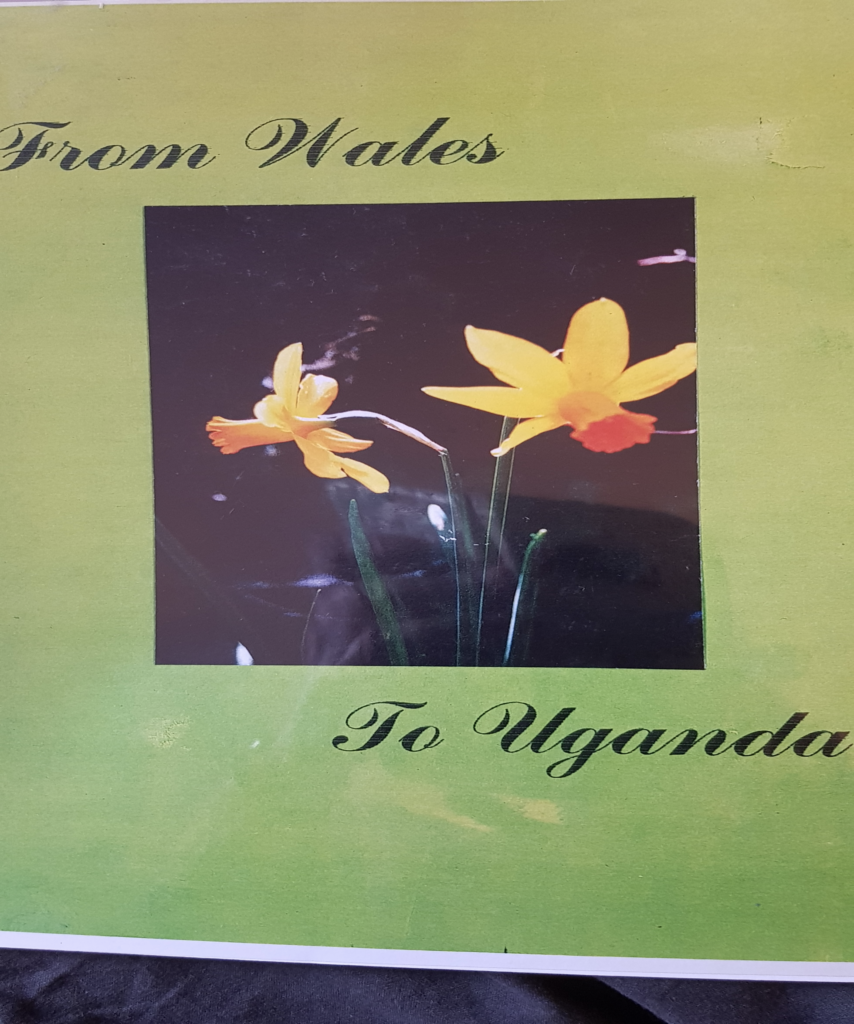Many women were raped, married out of their wish and many became widows. Young girls were taken and raped before age (Eleanor, a local woman leader in Kikamulo, Luwero District, discussing the war, Interview P16, lines 22-23)

My ESRC-funded PhD research was entitled: A Gendered Analysis of the Experiences of Ugandan Women War Survivors. It investigated the experiences of Ugandan women and men during the civil war in Luwero between 1981 and 1986, and analyses the effects of violence, rape, and torture, in terms of the resulting needs of the people and future policy implications. It is based on in-depth interviews with men and women survivors as well as key informants. A woman from a focus group discussion in Kamuli, Luwero District described her experiences during the conflict:
We were locked up in a store and raped endlessly for three days. The first soldier tried to penetrate me but failed then his two friends held my legs apart and he cut me with a panga, and they tied me up and cut my hands using broken glass and they raped me. I cried so hard.
Another woman I spoke to from Kamuli group who was gang raped during the war described the impact of her experiences:
For me the effect of the constant aggressive rapes left me with constant chest, back, and abdominal pain. I get some treatment but still, from time to time it starts all over again. It was terrible.
Women’s International Peace Centre (formerly Isis-WICCE) summarised the physical health impact of conflict-related experiences on women:
The magnitude of preventable and treatable gynaecological problems among the population in Luwero District is enormous. (AGOU, 1999:15)

However, women survivors I interviewed demonstrated considerable resilience, resistance, and agency. For example, Sally from Kasana, a young girl during the war, chose to fight to protect herself from rape:
The Obote soldiers used to come and take girls, so I said to myself ‘I’ll not be here to be cut or taken…let me join Museveni’s guerrillas then I went’. I went to Kyamutakasa, training for the Guerrillas for six months. The training was very hard, but at least I wasn’t being cut. We were 6 girls all together. I finished my training and got my papers and identity card and came back to my parents who said ‘I had finished the training very well.
Salmana, a woman I spoke with in Kamuli described the benefits of music and singing groups: It helps to comfort, and it helps us to learn from each other. A woman in Wakayamba narrated: When you talk to someone else it helps to lessen the burden on your heart.

Following up my PhD recommendations and through fund-raising by the Older Feminist Network in South Wales, I was able to deliver time-limited specialist medical treatment for women conflict survivors in Luwero, as well as the establishment of an income-generating scheme, through donating goats for breeding. Through my father’s support I was also able to initiate the building of a bore well at a girl’s school in Luwero to provide clean water. The women in Wales in solidarity also wrote to the women in Luwero and vice-versa (see photo below).

Through a small research grant obtained from Coventry University I was able to interview conflict survivors and key personnel in Luwero to assess their experiences of these projects and this concluded:
The evaluation revealed the interventions contributed positively to collective empowerment of women conflict-torture survivors in Luwero. Women war survivors interviewed in Luwero felt a holistic approach to their reproductive health needs would be of benefit. They expressed the wish for a specialist reproductive health intervention service including gynaecologists employed by Luwero District as well as global changes in health policy to provide gender-sensitive services for all women affected by war. Women interviewed felt their views should be included at all levels in the future planning and delivery of services. Women felt sharing their painful experiences through the research had enabled recognition and an end to the silencing of their urgent health difficulties and therefore improved access to appropriate treatment. Women felt that increased access to income-generating schemes would further assist their ability to access appropriate healthcare. Through the process of narrating their experiences women reflected that they were able to break the silence about their urgent health needs as well as giving meaning to their pain. The use of a local drama group; links with women’s groups internationally and income-generating schemes in the current research have contributed positively to the further collective empowerment and positive growth of women conflict survivors. This in turn enabled women to make greater use of health services. However, although limited specialist medical interventions have been implemented, women’s need for specialist and sustained reproductive and gynaecological health care remains an urgent priority.

Carrying out training in Northern Uganda on supporting SGBV survivors
Left to right: Helen and Faddy Fladys Canogura, Director of Kitgum Women’s Peace Initiative